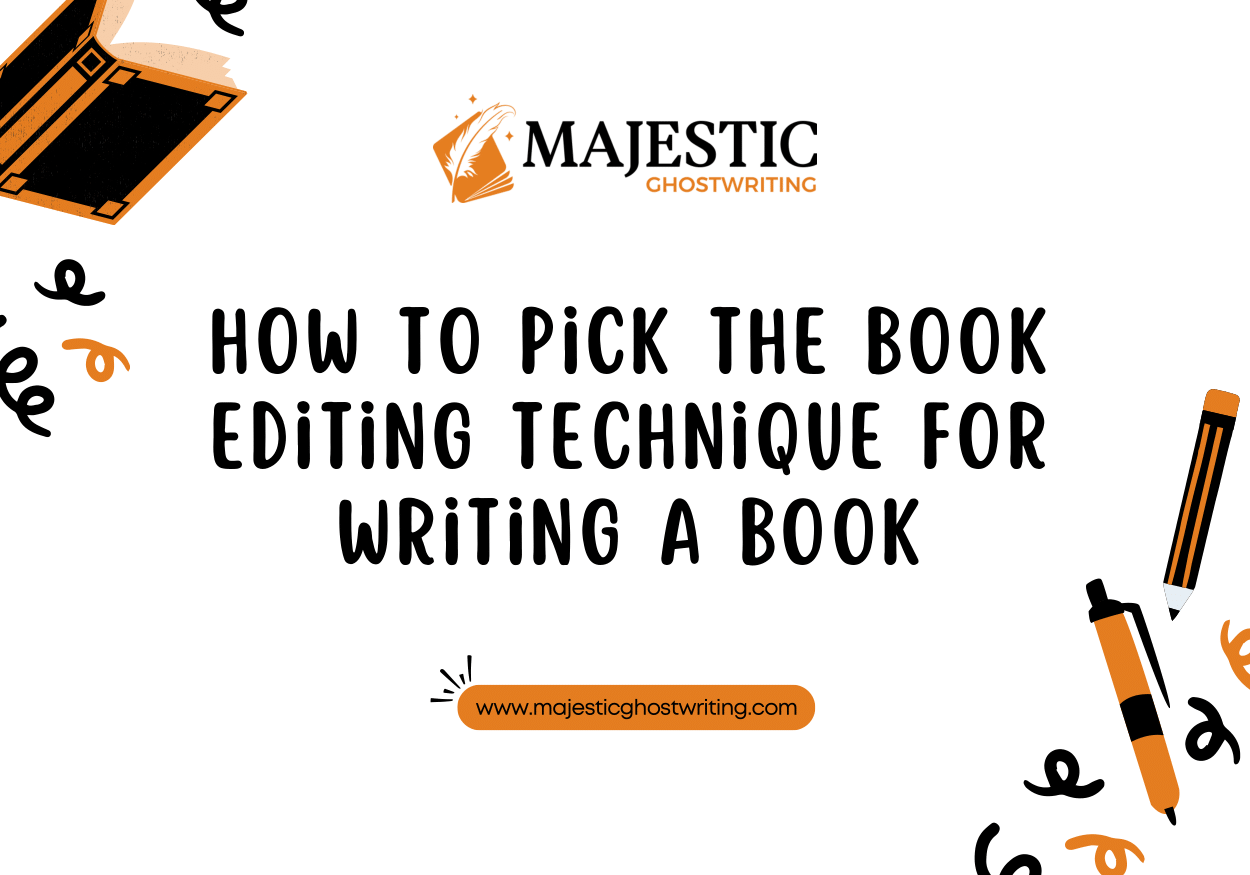Book editing guarantees that the final text is polished and readable, which makes it an essential step in the writing process. This blog explores several book editing methods to assist writers in selecting the best approach for their work. It provides thorough guidance by utilizing knowledge from experienced ghostwriters and insights from book editing services. Writers will acquire the ability to proficiently employ several book editing phases, such as developmental, copyediting, and proofreading, to polish their compositions and elevate their overall standard.
Understanding Different Editing Stages
Copies, proofreading, and developmental book editing are all separate steps in the multi-stage process of book editing. Improved book structure and overall narrative flow are the main goals of developmental book editing. To maintain consistency and clarity across the text, copy editing takes care of style, grammar, and punctuation. To ensure that no errors are left before publishing, proofreading is the last step. Fulfill publication standards and successfully convey the author’s message, these phases are essential for manuscript refinement.
The Role of Developmental Editing
Extensive book editing is essential to improving a book’s narrative and organization. It entails a thorough examination of the structure and flow of the book’s material. To make sure that every component of the tale successfully contributes to the coherence and reader engagement of the work. Editors and professional ghostwriters work together to polish important parts like plot and character development. This phase is crucial for locating and fixing any significant problems with the plot or character arcs, which lays the groundwork for the next book editing stages.
Benefits of Working with a Professional Ghostwriter in Editing
There are several advantages to hiring a professional ghostwriter for the book editing process. Enhancing narrative components and crafting material that appeals to the target audience. That requires the unique viewpoint and storytelling skills that a ghostwriter offers. Their ability to organize and enhance plot aspects may significantly increase the book’s attractiveness and depth. By guaranteeing that readers will find the finished work to be not only well-crafted but also powerful and captivating.
Copy Editing Techniques
A crucial step in the production of books is copy editing, which concentrates on improving syntax, punctuation, and style. That helps to guarantee coherence and clarity throughout the work. This procedure is necessary to keep the tone consistent and to avoid distractions brought on by grammatical faults. Good copy editing makes the material easier to read and more entertaining for the reader, which improves the book’s entire reading experience. Also with the ensurance that the intended message is communicated effectively and professionally.
Integrating Technical Editing for Non-Fiction
For non-fiction publications, technical editing is essential. It ensures that facts are accurate, statistics are consistent, and technical phrases are used correctly. To thoroughly examine and validate each piece of material during this book editing step, editors frequently need to possess specific knowledge of the pertinent subject matter. This increases the book’s credibility and instructional usefulness by guaranteeing that the information is factual. And presented in a way that is easy for the reader to understand.
The Importance of Proofreading
To find any last mistakes before a book is released, proofreading is the last and most important step in the editing process. This vital stage serves as a safeguard, guaranteeing that the document is free of formatting problems, grammatical errors, and typos. Ensuring that the material remains professional, protecting the author’s reputation. And providing readers with a seamless reading experience all depend on meticulous proofreading.
Choosing the Right Book Editing Services
Choosing the right book editing services is a strategic decision that depends on your project’s specific needs and the expertise of potential editors. It’s important to assess what different editing services offer, including their handling of various manuscript genres and book editing stages. Authors should consider factors such as the editor’s familiarity with the subject matter and their previous editing experience. To ensure the service aligns with their vision and objectives for the book.
Collaboration Between Authors and Editors
A successful editing process depends on writers and editors working together effectively. It depends on open communication, helpful criticism, and a shared commitment to editing the book. Through this collaboration, both sides may pool their knowledge and perspectives to improve the story. Resolve any problems, and guarantee that the finished work faithfully captures the author’s vision while upholding strict literary standards. This kind of collaboration is essential to writing a text that is polished and captivating.
Conclusion
A manuscript must be professionally edited to become a polished book. Investing in professional book editing services is worth it since authors may improve their work to meet industry standards and appeal to their target audience with the help of professional ghostwriters and editors. This blog post will go into these details and give writers a thorough manual on how to select and apply editing strategies to improve their papers.


 (855) 524-0054
(855) 524-0054




